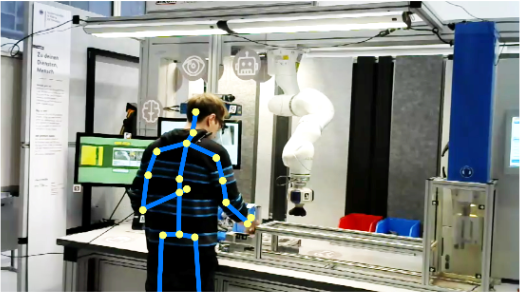Data driven user needs analyses
Workplaces of the future imply complex human-machine interactions in networked and constantly changing work environments. Performance indicators, such as overall system effectiveness, have long since ceased to be the main feature when it comes to sustainable workplace and machine optimisation. The increasing demands on employees require an even stronger striving for human-centered quality.
Human-centered quality is the extent to which requirements regarding usability, accessibility, user experience and avoidance of use-related damage are met (Ergonomics of human-system interaction - Part 11 Usability: Terms and concepts (ISO 9241-11:2018)).
Workplaces that violate quality characteristics of human-centred design have a direct effect on the behaviour, performance and commitment of employees. It is therefore essential to design workplaces in such a way that they fulfil the requirements for human-centred quality and thus enable employees to work better in the long term through positive user experience (UX). Semi-automated workplaces in particular offer the possibility of recording machine data and comparing it with user data.
Therefore, the Future Work Lab was the origin of the project D²UNA within the framework of the World of Ideas. Here, we at Fraunhofer IPA support companies in the conception, evaluation and realization of sophisticated human-machine interactions. The D²UNA Sensor Toolbox was created to carry out user needs analyses of complex work environments. The D²UNA Sensor Toolbox provides all necessary tools for mobile measurement. We support the definition of the performance indicators and UX metrics and develop the individual interfaces to record the machine data individually and according to the requirements. Together with your organisation we record the data in strict compliance with data protection guidelines. You will then receive the concrete analysis results and optimization recommendations to further develop your human-centric workplace.
 Fraunhofer-Gesellschaft | Future Work Lab
Fraunhofer-Gesellschaft | Future Work Lab